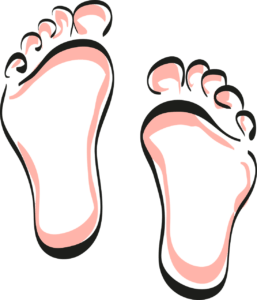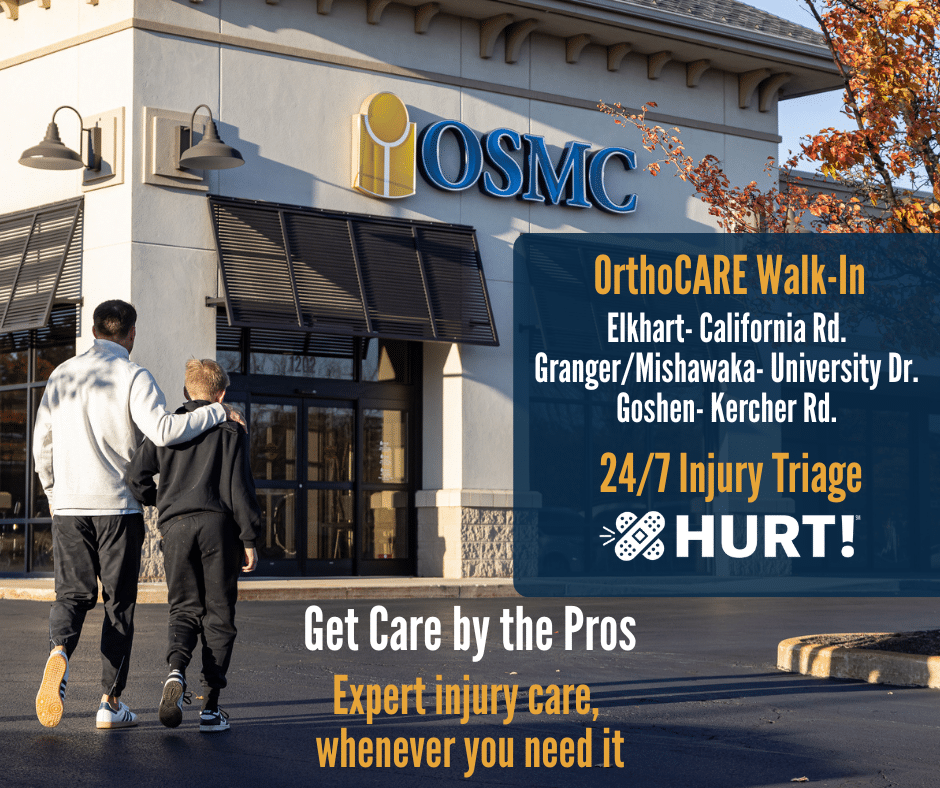

Feet! Many of us don’t give them much thought, however, those with diabetes or other chronic health conditions can be at major risk for experiencing wounds and sores on their feet and legs. Often even smallest injuries won’t heal and can become very troublesome. Staying alert and seeking care quickly can help avoid long-term wound issues.
Learn more about Foot and Ankle Surgery >>
Foot Wound Risks
Anyone can develop foot sores or wounds, but at greatest risk are those with:
- Diabetic Neuropathy (loss of feeling in the foot)
- Absent or diminished pulses
- Deformity of the foot
- A history of prior foot ulcers and sores
- Previous amputation
Common Types of Foot Wounds
- Diabetic Foot Ulcer: Diabetes and complications of diabetic Neuropathy cause diabetic foot ulcers. Diabetic foot ulcers appear most commonly on the big toes, balls of the feet, or heels.
- Venous Stasis Ulcer: Occurs due to damaged veins, which result in the pooling of your blood. These ulcers are most likely to occur on the ankle or leg area.
- Arterial Ulcer: An arterial ulcer happens when there is arterial insufficiency and may occur between or on the tips of toes or the outer ankle.
- Pressure Ulcer: A pressure ulcer is caused by a lack of movement in the feet or improper shoes. This ulcer is most commonly observed in the heels or ankle area of the foot.
Prevention
If you have a health condition such as diabetes, be sure to see your physician or podiatrist regularly for the care of your feet. The doctor is sure to mention the following tips and provide you with additional advice to help avoid sores and wounds:
- Wash your feet daily. Dry between your toes.
- Don’t go barefoot indoors or outdoors.
- Avoid getting your feet too hot or too cold.
- Wear absorbent socks. Change them during the day when needed.
- Don’t stand in one place for more than 15-20 minutes at a time.
- Don’t smoke.
- Eat a well-balanced diet.
- Be careful when clipping your nails.
Dr. Sean Henning, a podiatrist at OSMC, noted “Proper footwear, a healthy diet and maintaining healthy glucose levels can help your feet remain sore-free.” He added, “We encourage those in our care to check their feet regularly for red spots, cuts, swelling, or blisters.”
Wound Treatment
Determining which type of wound is important to providing an effective treatment. OSMC’s board-certified podiatrists are experts in the diagnosis and treatment of foot ailments. The physicians pursue a course of treatment using advanced podiatric care techniques. Feel better. Call OSMC at 574-264-0791 or book your appointment now.
This blog post is not intended to provide personal medical advice, professional diagnosis, opinion, treatment to you or to any other individual. It is information for educational purposes only. You should not use this information in place of a consutatation or the advice of a healthcare provider.



